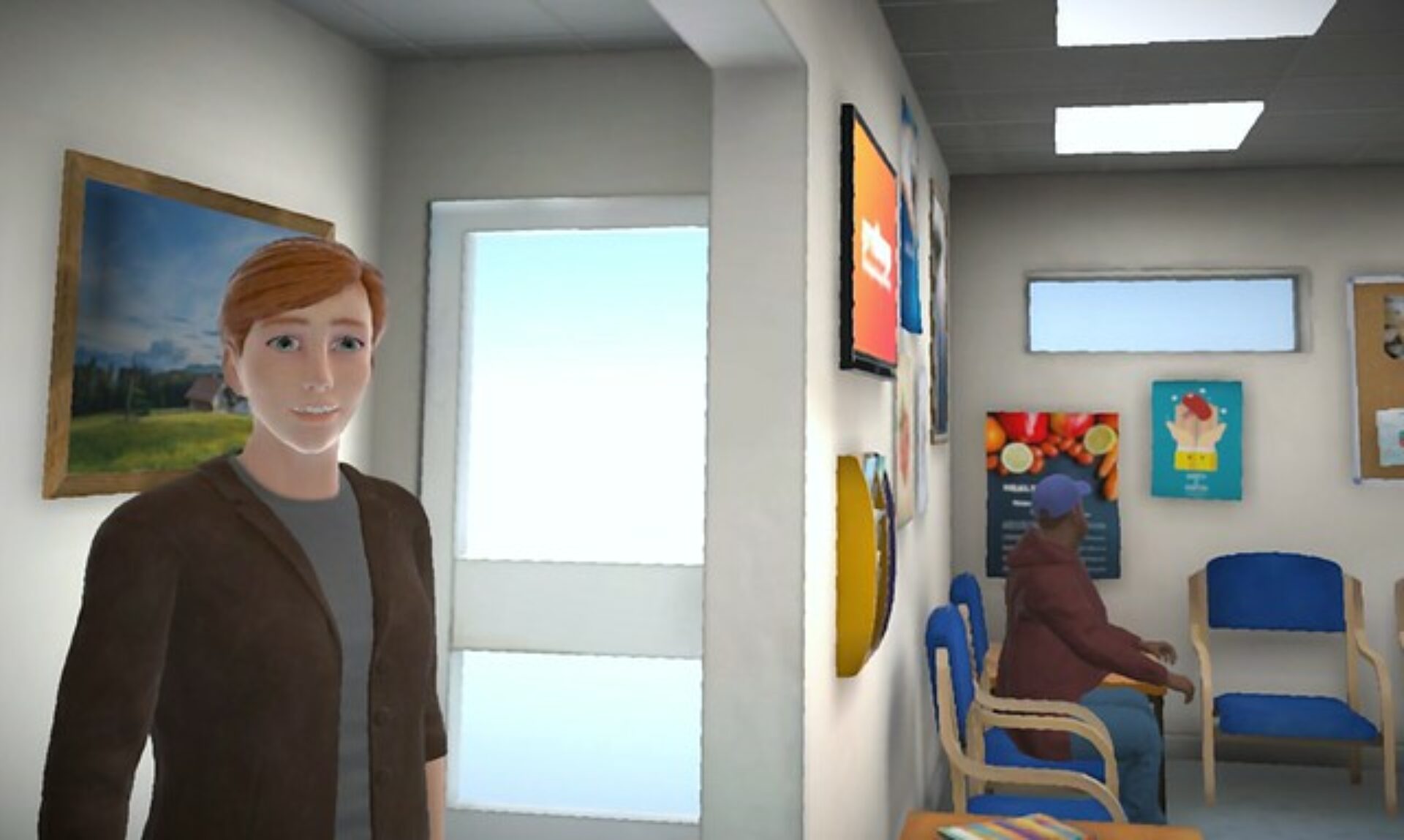This week, virtual reality (VR) treatment has been recommended for use in NHS mental health services for those living with severe agoraphobia and psychosis.
With the University of Oxford and others, McPin developed an innovative VR therapy on the gameChange project, which had strong lived-experience involvement throughout.
The National Institute of Health and Social Care Excellence (NICE) has approved this roll out for use in the NHS through a process termed ‘Early Value Assessment’.
A result of the largest clinical trial of VR for use in mental health treatment, the gameChange VR encourages people to explore virtual scenarios with a virtual therapist who can guide them through their thoughts, feelings and responses in certain social situations.
Currently, most people with psychosis do not receive psychological therapy. For those that do, the therapy rarely focuses on difficulties with social interactions, despite many people having intense fears about being outside and in public.
Lived-experience experts, working with McPin, selected the most appropriate VR scenarios to include, developed the VR design itself, contributing to the script of the virtual therapist, leading a peer-led study exploring service user experiences of the gameChange therapy and more. You can read about one of our lived-experience experts work on the project.
Alex Kenny, Senior Public Involvement in Research Officer at McPin and one of the leads on the gameChange project, says:
“It is really exciting news. This brings us one step closer to seeing the gameChange virtual reality therapy rolled out across the NHS in the UK.
It is important for people with psychosis, especially those with severe agoraphobia, to access and receive this treatment, instead of being left isolated at home.
We interviewed people, who had taken part in the gameChange project and many reported that their lives have changed and that they are now able to go out into the world and feel less isolated.
The news from NICE is testament to the excellent work that all the lived-experience experts did creating and shaping the virtual reality treatment from the start. We were a large team including a lived experience advisory panel (LEAP). They chose and designed the six environments that are visited in the virtual reality therapy, based on places they find difficult to go to and even came up with the name of the project, gameChange!”
McPin is incredibly proud to have been partners in the gameChange study. We want to acknowledge the role that many people played, including preparing papers for peer review publication (See Bond et al,. 2022). This includes member of the LEAP. It was an inclusive research partnership led by Professor Daniel Freeman from University of Oxford.
Particular thanks goes to Thomas Kabir, Dan Robotham, Alex Kenny, Jess Bond, Humma Andleeb and Lisa Couperthwaite for centring lived experience expertise in gameChange.
gameChange was developed by a multi-partner team: University of Oxford, Oxford Health NHS Foundation Trust, Oxford VR, The Royal College of Art, NIHR MindTech and nine NHS Trusts across England.
The gameChange research was funded the National Institute for Health Research (NIHR) Invention for Innovation (i4i) progrmame and supported by the NIHR Oxford Health Biomedical Research Centre.
The recommendations relating to gameChange from the National Institute for Health and Care Excellence (NICE) are available online: 1 Recommendations | Virtual reality technologies for treating agoraphobia or agoraphobic avoidance: early value assessment | Guidance | NICE
